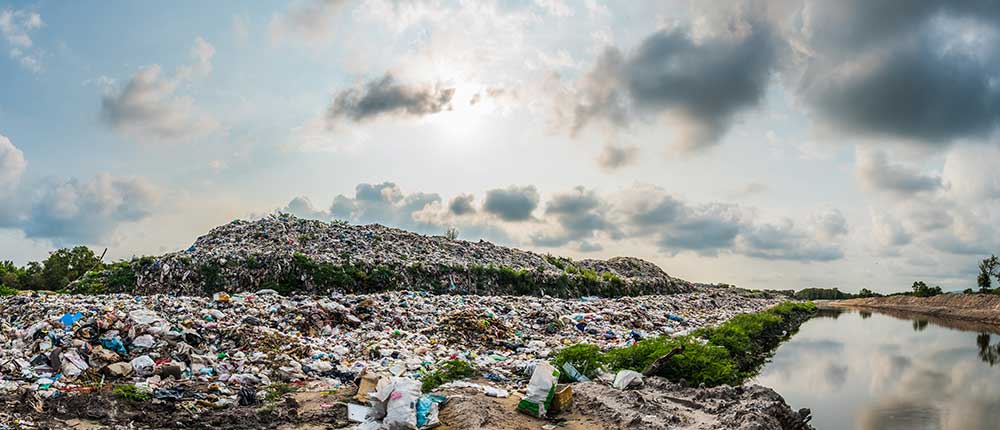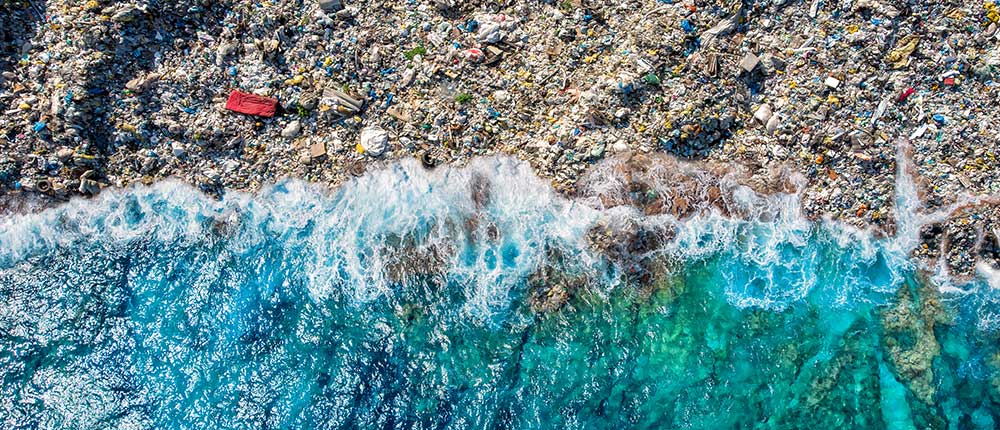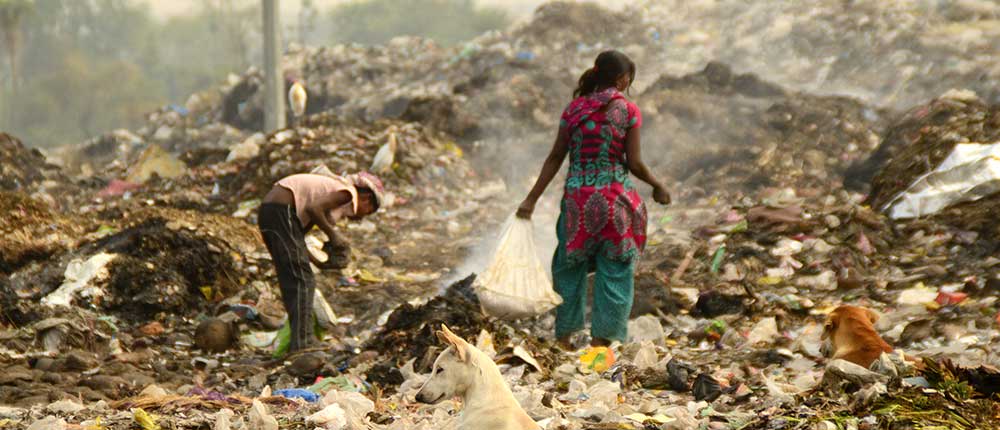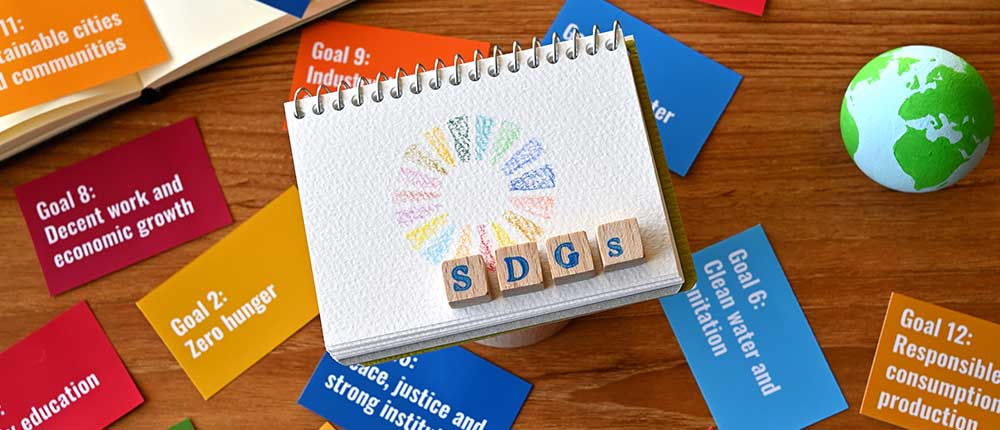In this article, Hans Nicolai Adam, Emmy Noklebye, and Girija K Bharat discuss biomedical and plastic waste management in the post COVID-19 world. The authors focus on the role of the informal sector, which plays a significant role in India's waste management systems, and is assuming a growing role in plastic waste management. Yet, the informal waste management sector remains highly vulnerable, as evidenced by the authors' study. The approach of recognizing the informal sector as a skilled and valuable sector and roping it in to tackle plastic waste management challenges will also automatically strengthen several SDGs.

Plastic pollution has grown to become one of the greatest sustainability challenges of the 21st century. Its unabated and increasing release into the environment stresses the integrity of ecosystems, and poses various, inadequately understood threats to human health. Plastic production has increased from 300 to 360 million tonnes during the past 5 years, out of which 50 per cent are purportedly single-use plastic items, according to a recent study1. Plastic particles (here in the form of tiny 'microplastics') have become so ubiquitous that they were even discovered in the placenta of an unborn child2, and otherwise find their way into aquatic ecosystems, particularly the ocean. Previous studies have estimated that 8 million metric tonnes of macroplastic and 1.5 metric tonnes of primary microplastic enter the world's oceans every year3.
The COVID-19 induced pandemic and related control measures have had devastating impacts on societies in 2020, and its immediate threat has overshadowed a multitude of environmental concerns, including climate change. A linked dimension of concern is the pandemics' disruptive effects on the roadmap towards agenda 2030, and achieving the 17 Sustainable Development Goals (SDGs). The increasing use of health-related single-use plastic (SUP) items, including personal protective equipment (PPEs) has been essential to contain the COVID-19 virus, but adds to the plastic pollution problem, if not properly managed. Researchers along the French Mediterranean coast documented with alarm that there are 'more masks than jellyfish4 washing up on shorelines and littering the seabed. Similarly, in India and elsewhere, ambitious targets to ban single-use plastics faced setbacks as public awareness and political focus shifted towards immediate pandemic management. For example, SDG 14, 'Life Below Water', and its target to prevent and significantly reduce marine pollution from land-based activities has been impacted. Similarly, other SDGs were affected in 2020, including SDG 1 'No poverty'; SDG 2 'Zero hunger'; SDG 3 'Good Health and Well-being'or SDG 10 'Reduced inequalities'. In India, millions of people have been pushed into—oftentimes extreme — poverty, with the informal economy disproportionately affected by contact restrictions and an economic downturn.
While the pandemic caused setbacks on progress towards achieving the SDGs, 2021 also offers opportunities to reflect and think ahead. In the aftermath of crisis, avenues to learn and precipitate change that departs from a status quo may open. A sustainable development agenda post COVID-19 must focus on sustainability and justice, building back greener and developing inclusive solutions that leave no one behind. This prominent theme will also figure at the World Sustainable Development Summit (WSDS) 2021 under the umbrella of 'Redefining our Common Future: Safe and Secure Environment for All'.

Plastic and PPEs: A Double-edged Sword?
Plastic waste generation in India during 2018–19 was estimated at 3.36 million tonnes per year, according to the Central Pollution Control Board (CPCB). Yet, we must distinguish between plastic waste generation and waste released indiscriminately into the environment. The latter is more difficult to measure and mainly becomes a marine pollution challenge, if mismanaged. Research suggests that India is the 12th largest releaser of plastic waste into the oceans5. While India's per capita plastic waste generation is relatively low compared to the global average, a growing population and fast-paced economic development contributes to a sharp increase in SUP consumption. There are also serious concerns that targets to reduce marine litter will be jeopardized if municipal waste management systems fail to keep pace with this rise.
Unlike plastic waste, biomedical waste is usually managed in a closed loop system in tune with the Biomedical Waste Management Rules, 2016 (BMWM Rules) but capacities to handle waste volumes safely differ across regions and localities. The growth in single-use plastic for PPEs, such as face shields, gloves, goggles and PPE suits, has added to the pressure on municipal waste management systems. A staggering 129 billion disposable face masks and 65 billion plastic gloves are estimated6 to be used globally every month and have become a visible manifestation of a new normal. They are found littered or washed up at beaches across India affecting wildlife and human health.
On the other hand, COVID-19 has, perhaps, partly flipped the narrative of the plastic debate, as SUPs played the role of 'saviour' through its widespread application in protective health functions. In this regard, Indian Vice-President, Shri M Venkaiah Naidu, pointed out that 'The problem is not with plastic. The problem lies in our attitude towards handling plastic including improper littering habits and lack of awareness on plastic waste management7.

The Role of the Informal Sector in Plastic Waste Management
Data from the National Sample Survey Organization (NSSO) highlights that employment in India remains overwhelmingly informal; for instance, among waste pickers and intermediaries, 75 per cent are informally employed8. Limited data exists on the size of the sector, with estimates suggesting that between 2 and 4 million people are engaged in it. The socio-economic impacts from the pandemic were felt acutely by the entire informal sector and its workers, whose access to social security, government insurance schemes, and health care is limited. Following the initial lockdown in March 2020, limited livelihood opportunities in the cities triggered a massive reverse migration of mostly informal workers, whose long and arduous journey home—shocked the collective consciousness of the nation9.
The informal waste management sector10 has typically been characterized by small-scale and unskilled recycling activities, providing a source of income for workers living under conditions of economic insecurity and socio-cultural marginalization. However, recognition that the informal waste management sector is built on entrepreneurial acumen, specialized skills, and resilient structures is slowly growing.
It plays an integral role in waste management practices and provides essential waste collection services, including over the past year, despite the hazardous nature of the work. While there is limited data on the aggregate scale and recycling capacity, a wealth of studies from urban centres in India testifies to its role in saving costs for municipal corporations and closing the loop on plastic waste value chains by extracting even minute values efficiently. Experts estimate that leveraging existing informal infrastructure towards more efficient waste management systems has the potential to decrease the amount of waste sent to landfills in Indian cities by up to 70 per cent.
Insights from a Pilot Study on Plastic and Biomedical Waste
A recently released study11 examined how plastic and biomedical waste management systems in two key urban centres (New Delhi and Surat) were impacted by the COVID-19 pandemic at the height of the crisis. Data collected between March and July 2020 also represents a snapshot into how the prolonged national lockdown affected aspects of the waste management systems and livelihoods in the informal sector. The situation has comparatively normalized since those first turbulent months, yet insights from this exceptional period represent valuable lessons as we look beyond immediate crisis management and enter a recovery period.
Data obtained from Delhi and Surat clearly indicates a drop in overall waste generation from pre-COVID-19 levels, while Common Biomedical Waste Treatment Facilities (CBWTF) had excess capacity in both study sites. However, a spike in mixed household waste indicated that preliminary source segregation at the household level had taken the backseat, as public awareness and municipal strategies shifted towards managing COVID-19. The municipal corporations took some time to learn, adapt and formulate new response strategies to the changing composition and quantities of waste.
Loss of income was the most severe impact on the informal sector, as collection, segregation, and trade of plastic materials were disrupted. Income amongst waste pickers and recyclers declined by a staggering 50–75 per cent from pre-COVID-19 levels (during lockdown phases12). The 'double shock' of low oil prices13 (serving as a base ingredient for competitive virgin plastic), combined with reduced availability of high-quality recyclable plastic waste, contributed to push informal workers further into economic insecurity.
The study findings suggest that at least 20 per cent of workers in the informal waste management sector left Delhi and Surat temporarily. Reasons stated for leaving the cities included lack of employment during the complete lockdown and fear that migrant workers (without proof of residence) would not be eligible for hospital treatment if they fall ill with COVID-19.
Nevertheless, many informal waste workers continued to operate and provide essential services throughout the lockdown. This can be explained by a continuous (albeit up to 50 per cent lower) supply of waste generation—regardless of restrictions during the initial lockdown period. During this period, a change in plastic waste generation and availability of recyclable waste was observed. Waste pickers reported a decrease in high-quality plastics (such as PET bottles) and an increase in low-grade plastics (such as packaging and plastic lining). The combination of decreased municipal waste generation, lockdown measures, and limited availability of high-quality plastics resulted in an overall reduction in the amount of plastic waste collected by waste pickers (52 per cent on average) in the study sites.
Most waste collectors also reported difficulties in selling their plastic waste. For example, one itinerant buyer mentioned that the price per/kg for a type of plastic dropped from 30 to 12—a decline of more than 50 per cent. Similarly, a waste picker from East Delhi reported that 'Earlier we were able to sell polythene for 5/kg, now no one wants to buy it and the bottle we were selling for 22/kg is now bought at 13/kg'. Some waste processing units also suffered from labour shortages, limited reprocessing capacity and an overall decline in supply and demand. Combined with uncertainty on lockdown rules and regulations, profitability and business viability across the informal recycling chain was adversely affected.
Findings also show that domestic biomedical waste was mixed with municipal solid waste. A representative from the CPCB elaborated that the 'challenges of the crisis includes improper segregation and the fact that there is no discrimination between plastics, biomedical and solid waste, which has resulted in overfilled landfills. Inadequately managed pandemic waste is also a potential hazard for anyone encountering it; particularly exposed are those workers in the informal sector who have continued to work in direct contact with potentially hazardous substances without access to PPE.

Aligning Goals of Socio-economic and Environmental Sustainability
The COVID-19 induced pandemic proved to be a stark reminder of the societal value that essential services and their providers hold, from health care to informal waste workers. It also reminded us of unequally distributed crisis-impacts and the inherent fragility of our economic, ecological, and social systems. What does this mean for the SDGs and a future roadmap towards environmental justice and sustainability?
Principles of environmental justice imply that the responsibility and burden for environmental degradation and pollution are shared equally. It also implicitly links to questions of power, and empowerment. As we have seen, the informal sector plays a significant role in India's waste management systems, and assuming a growing role in plastic waste management. Yet, the informal waste management sector remains highly vulnerable, as evidenced by our study. Poor safety standards exacerbate health risks for informal sector workers, which combined with little access to social security provisions, domicile benefits and market volatility cause livelihood insecurities. More efforts are required to support and recognize informal workers, assess the sectors' capacity, and leverage it towards targeting environmental goals such as reducing wastage, and ill-managed plastic pollution. Possible support mechanisms range from infrastructure support to legal and economic instruments.
For example, as India moves towards a framework for Extended Producer Responsibility (EPR)14, opportunities exist for EPR mechanisms to foster infrastructure investment and introduce economic incentives that support informal sector collection of low-value plastics, such as buy-back or deposit refund schemes for SUPs15. This is not only applicable to the Indian context but holds true for other low- and middle- income countries (especially in Asia) where a significant informal sector exists, and plastic waste is widely mismanaged. In discussions about a forthcoming global convention on plastic pollution, a stronger focus is required on how goals of reducing marine pollution will align with other SDGs, including poverty reduction, health and well-being, and reduced inequalities, to name a few. As we can see from the Indian experience, principles of environmental justice and sustainability can and need to go hand in hand. An alignment of goals that is a prerequisite for a win-win situation.

Looking Beyond Crisis Management
Plastic pollution embodies a multifaceted environmental issue, structurally anchored in our modern-day consumer societies. The increasing use of SUPs is both a boon and bane, as we can gauge from the COVID-19 pandemic. But plastic pollution is also symptomatic of the contradictions and challenges we face when dealing with this versatile material, in its various garbs and manifestations; it can be both a saviour and pollutant based on how waste is used and managed. Responsible production, consumption, and recycling enforced through regulation and supported by technological innovation will play a major role in its safe management. There is however no magic bullet.
The informal sector can play a significant part of multifaced solutions that support livelihood opportunities and are suitable to local waste management scenarios in the meanwhile. The approach of recognizing the informal sector as a skilled and valuable sector and roping it in to tackle plastic waste management challenges will also automatically strengthen several SDGs. Importantly, for now, the informal recycling industry needs to be supported, so regulatory uncertainties and long-lasting closures related to COVID-19 do not cause further harm or weaken the informal waste ecosystem, and its intricate recycling chains.
The looming challenge of mass vaccination and related biomedical waste, involving hundreds of millions of people will be a major task for waste management systems. While biomedical waste management capacities seemed to be largely satisfactory in the urban centres we examined in 2020, the same might be very different in rural settings, towns, and smaller municipalities. The scale and complexity of the planned inoculation against COVID-19, combined with the prospect of massive biomedical waste generation, warrants an unprecedented joint effort among all societal stakeholders—from government, to civil society, and all actors in the waste management ecosystem. Measures to be taken range from building up biomedical waste management facilities, strengthening technical capacities, and implementation of waste governance regimes; including the informal waste management sector in this process will be crucial to prepare for the (plastic and biomedical waste) challenges ahead.
The social inequities rooted in informality also need to be considered when planning the distribution of a COVID-19 vaccine. Many informal waste workers might lack identity documents (such as a passport, voter ID, Aadhar card, or residence proof), and may therefore face difficulties or delays in accessing vaccination16. Making social security, health care services, and future vaccination programmes available to informal sector workers are not only important tools to limit the spread of COVID-19, but also to ensure that the waste management ecosystem is not disrupted. The measures will also ensure recognition, support and continuity to a sector that provided an essential public service, at high risk, throughout the pandemic period.
Acknowledgements: This research was carried out under the scope of the India-Norway cooperation project on capacity building for reducing plastic and chemical pollution in India (INOPOL). The authors gratefully acknowledge the project owner, the Royal Norwegian Embassy in New Delhi, for funding and supporting this study. The views expressed here are solely of the authors and not the funding organization.
Authors: Hans Nicolai Adam and Emmy Noklebye, Section of Water and Society, Norwegian Institute for Water Research (NIVA), Oslo, Norway; and Girija K Bharat, Mu Gamma Consultants Pvt Ltd (MGC), Gurgaon, India.
This article was first published in the TerraGreen online magazine.
Footnotes:
[1] Details available at https://www.deccanherald.com/science-andenvironment/global-plastic-production-up-by-60-million-metrictonnes-in-five-years-890311.html
[2] Details available at https://www.theguardian.com/environment/2020/dec/22/microplastics-revealed-in-placentasunborn-babies
[3] Lau, et al. 2020. Details available at
[4] Details available at https://www.theguardian.com/environment/2020/jun/08/more-masks-than-jellyfish-coronaviruswaste-ends-up-in-ocean
[5] Jambeck, J.R., Geyer, R., Wilcox, C., Siegler, T.R., Perryman, M., Andrady, A., Narayan, R., and Law, K.L. 2015. Plastic waste inputs from land into the ocean. Science 347(6223): 768–771. Details available at https://science.sciencemag.org/content/347/6223/768
[6] Prata, J.C., Silva, A.L., Walker, T.R., Duarte, A.C., and Rocha-Santos, T. 2020. COVID-19 pandemic repercussions on the use and management of plastics. Environmental Science & Technology 54 (13): 7760–7765
[7] Details available at https://www.hindustantimes.com/india-news/problem-not-with-plastic-vp-calls-for-responsible-use-of-plastics/story-F2pfmQch4xVje6GKHeTQ2H.html
[8] Raveendran and Vanek. 2020. Details available at https://files.wri.org/s3fs-public/towards-more-equal-city-including-the-excluded_2.pdf
[9] Details available at https://www.sciencedirect.com/science/article/pii/S0188440920309401
[10] Alternatively, informal recycling sector
[11] [INOPOL] (2020) Pilot study for plastic and biomedical waste management during the COVID-19 pandemic in Surat and Delhi. India-Norway Cooperation Project on Capacity Building for Reducing Plastic and Chemical Pollution in India.
[12] https://en.wikipedia.org/wiki/COVID-19_lockdown_in_India
[13] Details available at https://resource-recycling.com/plastics/2020/05/06/low-virgin-plastics-pricing-pinches-recyclingmarket-further/
[14] MoEFCC (2020) Guideline Document: Uniform framework for Extended Producer Responsibility
[15] EPR increasingly hold producers accountable for the end-of-lifemanagement of post-consumer products
[16] Details available at https://www.firstpost.com/india/covid-19-vaccine-in-india-how-to-apply-for-jab-on-centres-cowin-appregistration-documents-required-9130181.html
